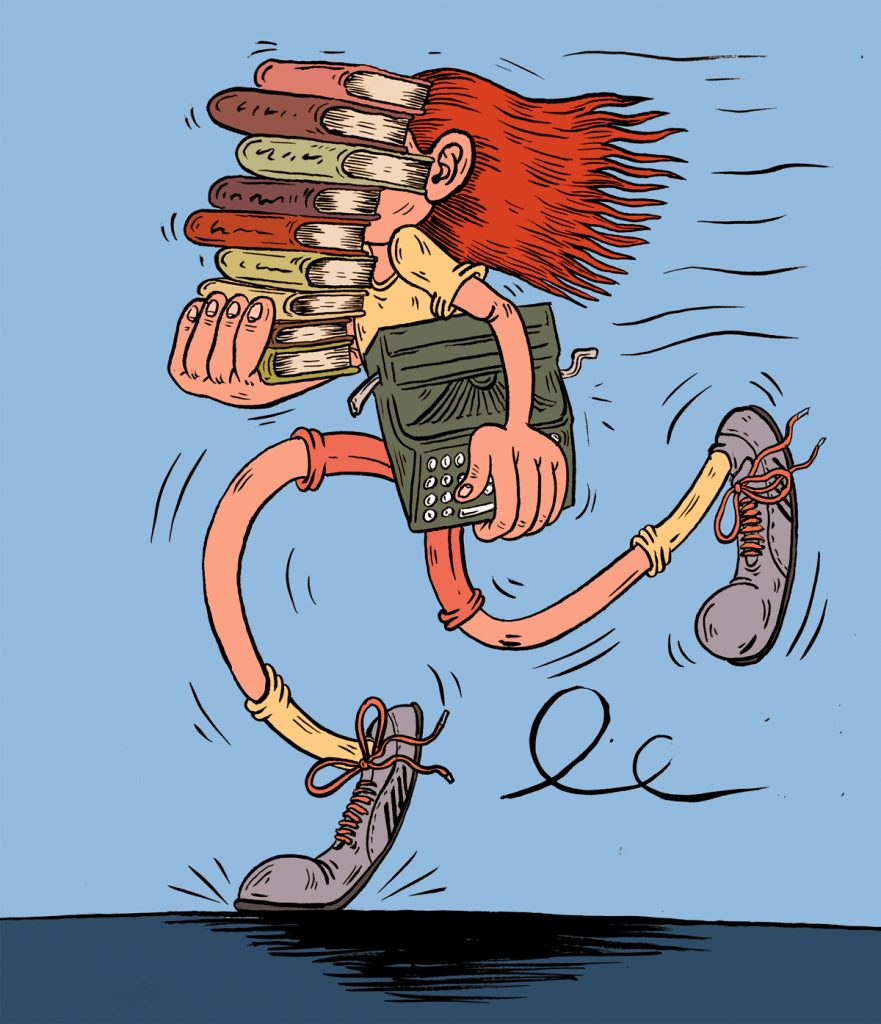
A Novel Training Guide: Writing Tips from a Mediocre Marathoner
Savannah, Georgia, January 1985. Slate sky, a blustery wind, cold rain not out of the question as several hundred runners huddled at the starting line. My first marathon comprised two loops of flat and unforgiving runways at Hunter Airfield, adding up to a foot and mind-numbing 26.2 miles. I had no idea what I was starting that chilly morning: I went out too fast, too cocky, hit the proverbial wall at mile twenty, slowed to a jog, then a creep, and finally hobbled across the finish line. Still, I was a fit twenty-one-year-old; my average pace—about eight-minutes-fifteen-seconds per mile—was decent, bringing me in at three hours and thirty-six minutes.
My first novel took a lot longer. If I was unprepared for my first marathon, I was woefully ignorant about what it would take for me to finish a book. Ten years of stops and starts, periods of intense focus, followed by days, weeks, sometimes months without writing. Pages typed—amazing, heart-rending prose. The same pages tossed—self-indulgent dross. Rapid-cycling elation and despair, and, of course, persistent procrastination. I washed and folded thousands of loads of laundry and logged as many miles of running—lacing up my Nikes when writing got tough, justifying the time spent on the roads as creative composting.
When I had a complete draft of the novel, my happiness lasted less than a week. I read through the manuscript and realized I was a few miles short of the halfway mark. Had I hit the wall? Would I ever finish?
I know I’m stretching the running-writing analogy here, but only when I began to write with the same discipline and focus that I applied to running was I able to complete my first novel. Turns out that for both you need to: (1) show up, (2) get going, (3) push through uncomfortable spots, and (4) put in the hours.
My first novel was a slow marathoner—the lone straggler coming in after the volunteers at the aid stations had picked the paper cups and banana peels off the asphalt, emptied the mega trash cans and gone home. But you know what? After wanting to quit many times, I hobbled across the finish line. My book—”Degrees of Difficulty”—comes out on October 1, 2019.
I’ve run more marathons in my forties and fifties, never once coming close to the time I set in Savannah thirty-odd years ago. I have no illusions that I will regain my youthful speed. I doubt I could run one eight-minute mile these days, never mind twenty-six in a row. Maybe this is where the analogy fails: marathoning takes its toll on the joints; age slows you down. Writing, on the other hand, gets, well, not easier exactly, but more comfortable. Or the discomfort becomes more familiar, almost good company. Most writers say that you can’t rush; stories will come out in their own time. That’s true. But they won’t come at all if you don’t write. Years of steady training does pay off—pages written, pages tossed, edits completed, skills developed, a few essentials mastered.
What I learned from my first book about plot, character development, voice, narrative structure—weaving threads of the story in, cutting out flabby sections—all these lessons have stayed with me. My second novel took five years to complete. Less angst, less drama. It’s easier now for me to chop relentlessly, to recognize what is not working and to let it go. Writing every day leads to a steady accretion of skills and the comforts of any longterm habit; it may even lead to increased speed and efficiency—things we don’t usually get as we age. I’m never going to get close to completing a three-and-a-half-hour marathon again, but I may get a third book done in the next three years.
Illustration: Baldur Helgason